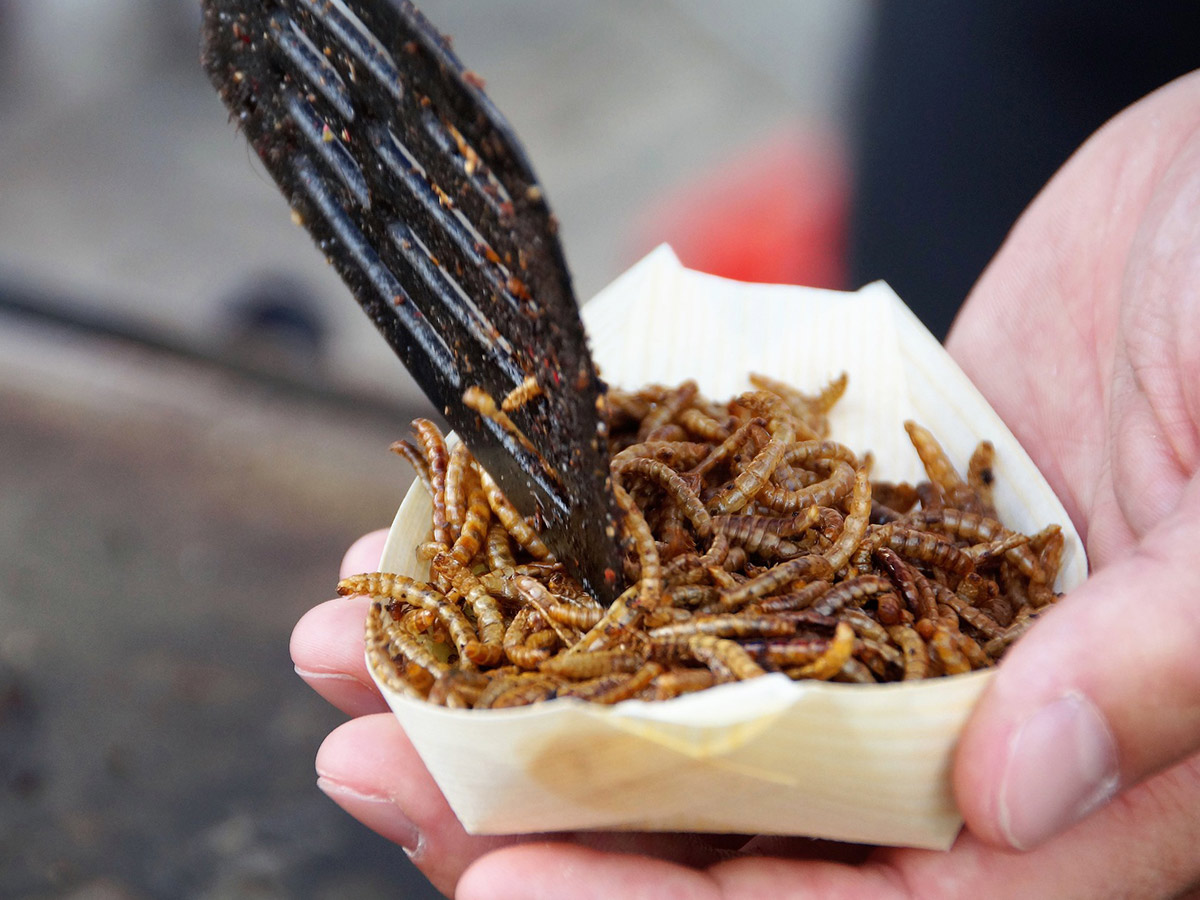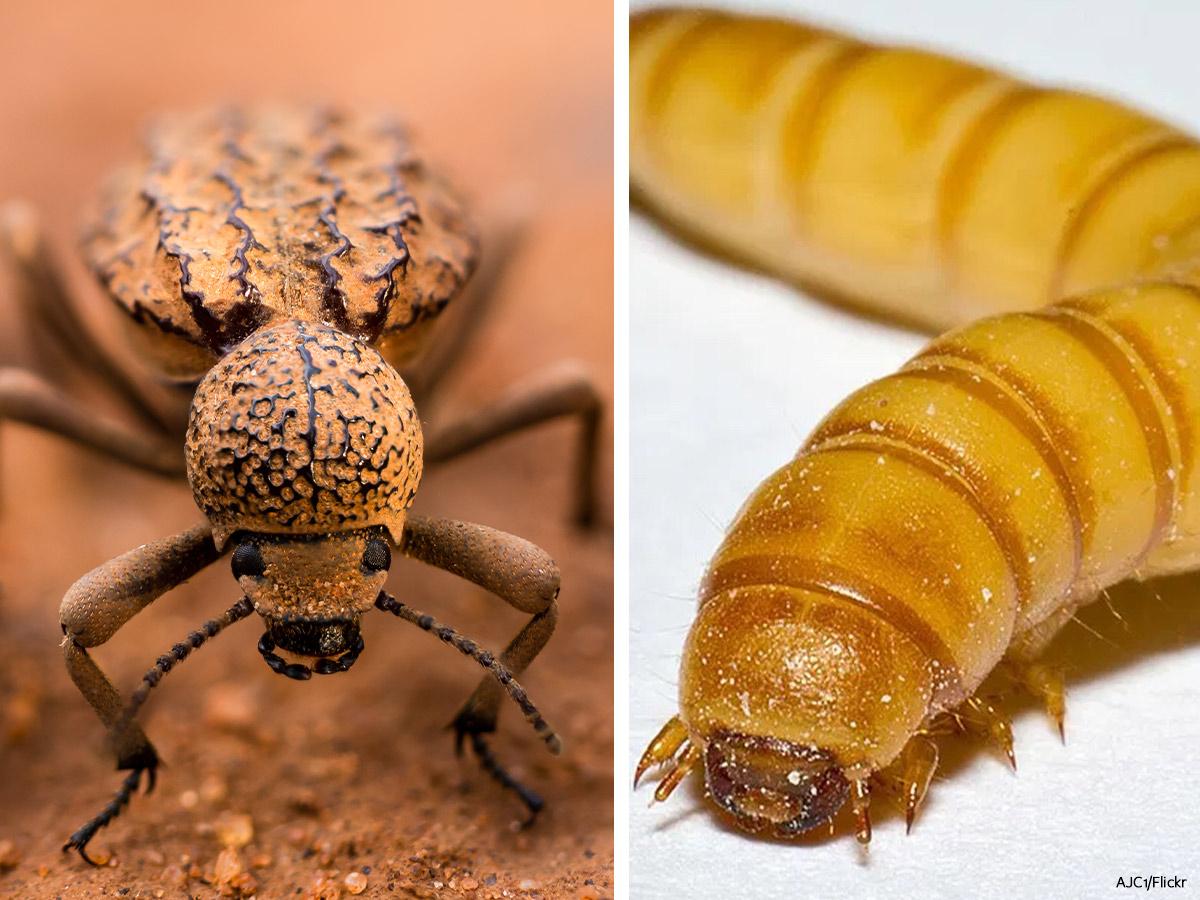Are Insects the Next Victims of Massive Scale Factory Farming?
On January 13, 2021, the European Food Safety Authority (EFSA) approved mealworms as safe for human consumption. This is a first of its kind approval as up to now the EU has imposed a ban on the sale of insects-as-food in most of its countries. This is a regrettable decision in every sense. It will result in the suffering and death of trillions of individual animals (yes, insects are animals); it is counterproductive in terms of energy consumption; and it is a huge waste of food that is fed to insects that could otherwise go to feed those in need directly.
A mealworm is a caterpillar or maggot-like insect. The mealworm is the larval form of the darkling beetle. As inconvenient as this may be to some to learn, insects do feel pain, and do have personalities. As fellow animals, they have nervous systems that resemble ours in many ways. Many insects possess endorphins and enkephalins, which are the same chemicals that humans have for the regulation of pain and stress. This only makes sense. As individuals who travel around to go about their business, they require the sensitivity to heat, cold, pressure, and other forms of damage that would otherwise threaten their bodily integrity. A 2019 study published in the journal Science Advances has shown that after fruit flies are “hurt once badly, they are hypersensitive [to pain] and try to protect themselves for the rest of their lives.”
Likewise, scientists have demonstrated that insects do have personalities. Consider the EU-funded COLONYPERSPOLS project, which found differences in learning speed and preferences for different colors in bumblebees. In a separate study, conducted out of the University of Debrecen in Hungary, fire bugs were shown to have differences in boldness, activity, and “explorativeness.” "Our results show that there are personality differences between the individuals of the fire bug," lead author Enikő Gyuris wrote, "and we found that they behave consistently over time."

These facts are especially inconvenient to those looking to implement large scale insect factory farming, for the process of “farming” insects is gruesome indeed. For starters, mealworms must be deprived of all food for 24 hours before they are killed, “to reduce their microbial load.” Next, enormous amounts of mating adults are placed on large industrial sieves, to filter out their eggs. The larvae are then killed by immersion in scalding water.
Trillions of insects are already being boiled alive, and even more feeling, sentient trillions will die these agonizing deaths if the notion of insects as human food becomes acceptable.
The claims that insect agriculture is somehow clean are also misleading. Insects are an inefficient source of food for the exact same reason larger livestock is. Insects, just like other livestock and all other animals, have robust metabolisms, and require vastly more plant energy to grow and stay alive than they generate in “food.” Always, without exception, food energy is lost as one moves up the trophic level from plants to various animal species. In addition, insect protein does not even necessarily displace the use of animal protein. Bloomberg reports that the majority of all insect protein will go towards animal feed. Human insect protein uses cited by major players in the insect-based food industry include fortifying foods such as pasta and bread. So we will continue to waste energy due to the livestock industry, and now we will waste even more to insects.
The insect-based food industry is actively plotting ways to get ground-up insects to infiltrate countless meals. The insect species they are eyeing include crickets, locusts, flies and honeybees, among others. Some examples of foods that may soon contain the shredded up bodies of insects include noodles, curries, bread, smoothies, biscuits, pasta, burgers, protein beverages and bars and salad topping. Bloomberg is reporting that Europe’s insect protein output could reach 3 million tons by 2030.
Fortunately, this is not a done deal yet. Before insect based foods can start hitting the shelves, the EU Commission must endorse the EFSA’s approval. Industry insiders expect this may happen quickly, in the coming months. Let us hope it does not.
Please share this resource widely. We must halt this massive travesty in its tracks.


